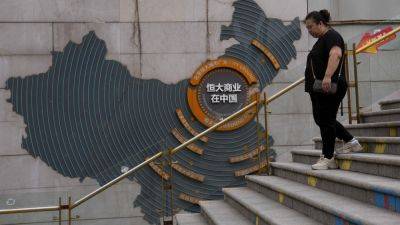China and Taiwan: A really simple guide
China sees self-ruled Taiwan as a breakaway province that will eventually be under Beijing's control - and has not ruled out the use of force to take the island.
But Taiwan sees itself as distinct from the Chinese mainland, with its own constitution and democratically-elected leaders.
Taiwan has strong links to China, its biggest trading partner. And many Taiwanese have business and family connections across the strait. But over time, polls show that the number of people who identify as Taiwanese, as opposed to Chinese, has gone up.
The island, which is roughly 100 miles from the coast of south-east China, has been home to various indigenous tribes for centuries.
Historical sources suggest it first came under the full control of a Chinese empire in the 17th Century. It became a Japanese colony in 1895, after the Qing empire lost the first Sino-Japanese war. Then in 1945, after Japan lost World War Two, China took the island but now a nationalist government, led by General Chiang Kai-shek, was in power.
This was at the height of a decades-long conflict between Chiang's forces and Mao Zedong's Communist Party. When the communists won in 1949, Chiang and what was left of the nationalist party, known as the Kuomintang or KMT, fled to Taiwan, where they ruled for several decades. They called this the Republic of China, a name Taiwan has retained.
The Chinese Communist Party points to this history to claim Taiwan. But the Taiwanese point to the same history to argue that they were not part of the modern Chinese state that was first formed after the revolution in 1911 - or the People's Republic of China that was established under Mao in 1949.
Today, only 12 countries (plus the Vatican) officially recognise Taiwan. The US



